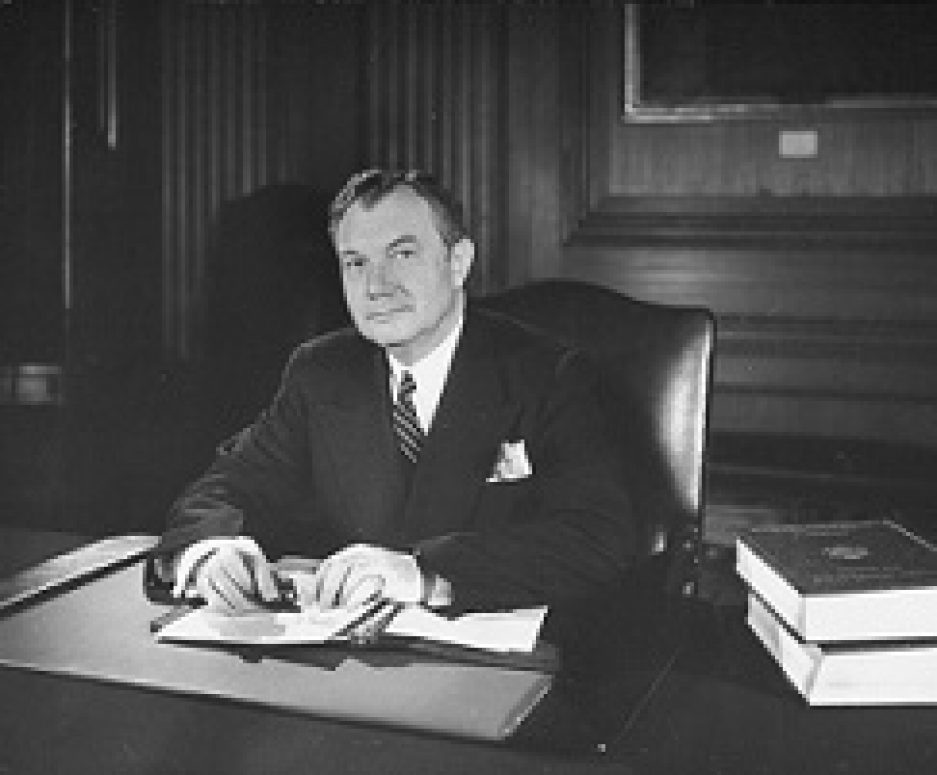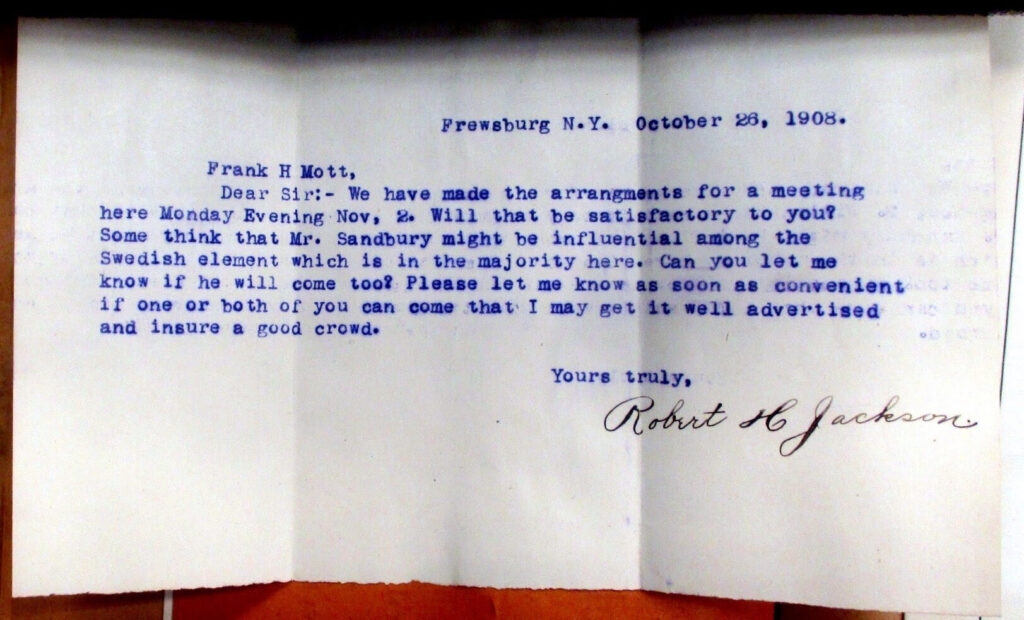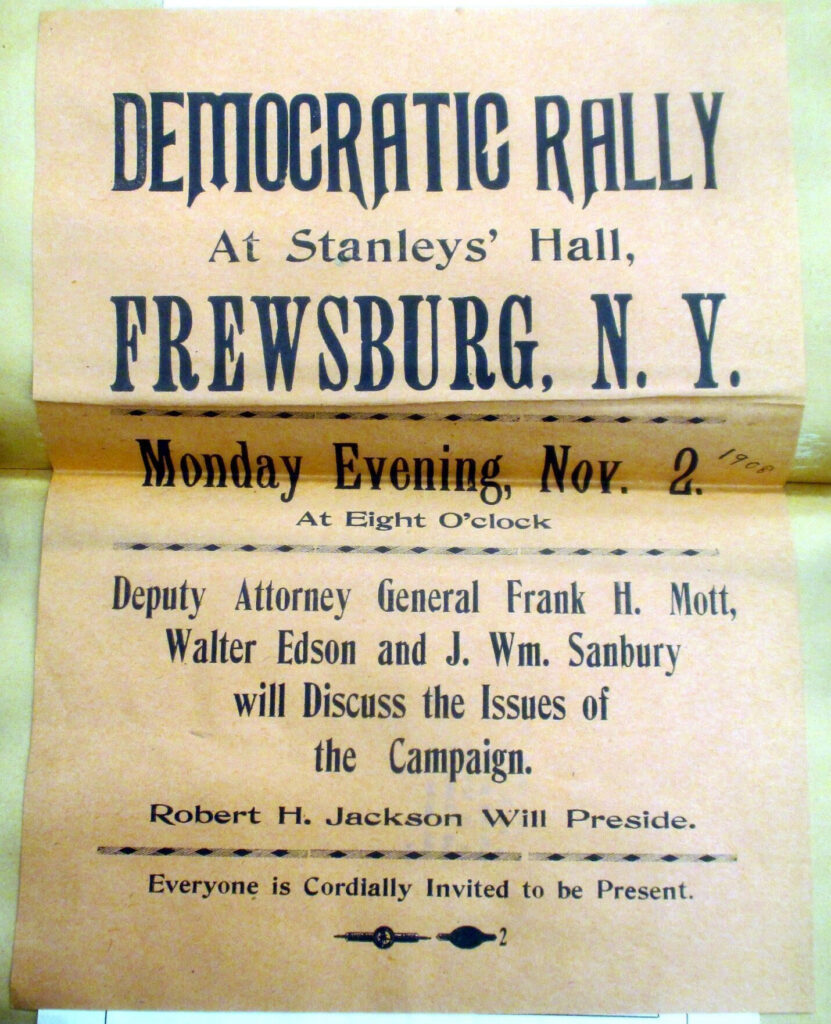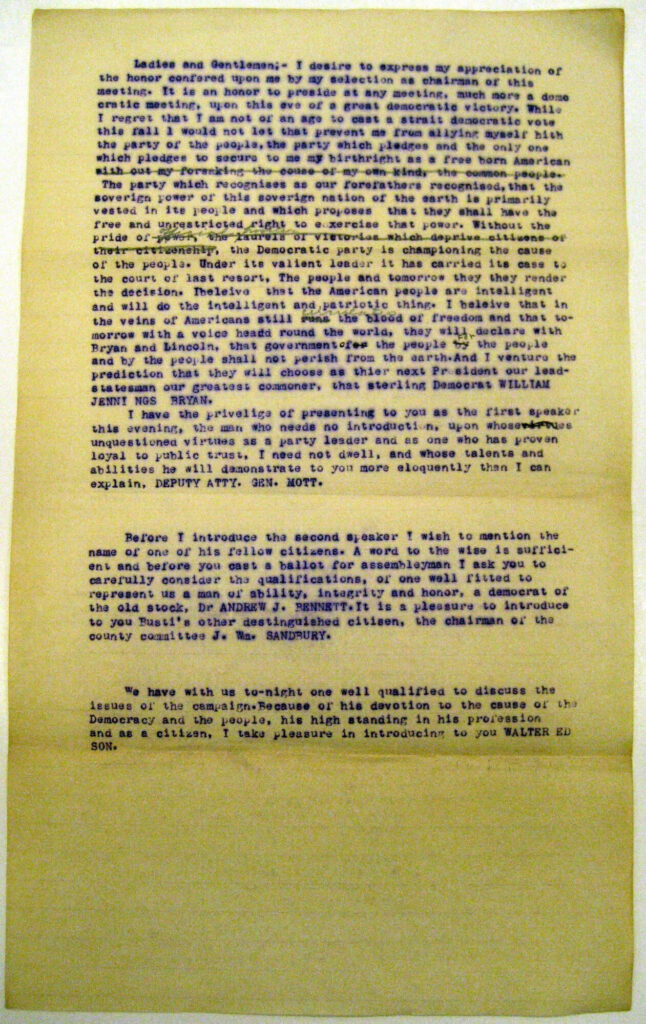In November 1908, Robert H. Jackson lived with his parents and sisters in Frewsburg, a small village in Chautauqua County, New York. Robert was a senior and a strong student at the local high school. His extracurricular interests included debating, public speaking, government, politics, and elections.
Following family political tradition, Robert Jackson supported the Democratic Party and its candidates. This interest was stimulated by his relative Frank H. Mott, who was a lawyer in nearby Jamestown, New York, and a leading Democrat in Chautauqua County and New York State. Mott at various times held Democratic Party offices, ran for elected office, and served as New York State’s deputy attorney general.
In Fall 1908, Frank Mott asked Robert Jackson to arrange for a Chautauqua County Democratic Party get-out-the-vote meeting in Frewsburg on the eve of election day.
Jackson made the arrangements. He obtained the venue, it seems. He also advised Mott to add to the program a speaker who would appeal to Swedish immigrants, a notable part of the community.
Mott decided that Robert Jackson, age sixteen, would preside at the meeting. Jackson prepared by typing and then editing remarks that he would deliver.
On that Monday evening, November 2, 1908, Jackson presided at the Democrats’ rally.
He delivered his first public political speech:
Ladies and Gentlemen;- I desire to express my appreciation of the honor conferred upon me by my selection as chairman of this meeting. It is an honor to preside at any meeting, much more a democratic meeting, upon this eve of a great democratic victory. While I regret that I am not of an age to cast a strait [sic] democratic vote this fall I would not let that prevent me from allying myself with the party of the people, the party which pledges and the only one which pledges to secure to me my birthright as a free born American
with out my forsaking the cause of my own kind, the common people.The party which recognizes as our forefathers recognized, that the sovereign power of this sovereign nation of the earth is primarily vested in its people and which proposes that they shall have the free and unrestricted right to exercise that power. Without the pride of
power, the laurels of victories which deprive citizens of their citizenship,official position, the Democratic party is championing the cause of the people. Under its valiant leader it has carried its case to the court of last resort, The people and tomorrow they render the decision. I believe that the American people are intelligent and will do the intelligent and patriotic thing. I believe that in the veins of Americans still runs circulates the blood of freedom and that tomorrow with a voice heard round the world, they will declare with Bryan and Lincoln, that government for of the people by for the people and by the people shall not perish from the earth. And I venture the prediction that they will choose as thier [sic] next President our lead-statesman our greatest commoner, that sterling Democrat WILLIAM JENNINGS BRYAN.
Jackson also introduced, in turn, each of the three speakers.
The meeting was a success.
But, alas for Chautauqua County Democrats and Democrats across the country, their candidate, William Jennings Bryan, did not win the presidency.
The victor, by votes of men (only) that States used to assign their presidential electors, was the Secretary of War, William Howard Taft.



